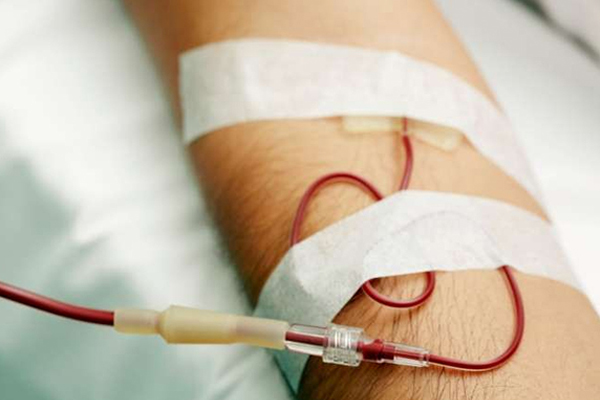What Is Thalassemia
Thalassemia is a genetic blood disorder, transmitted to the offspring from their parents. Due to this disease, hemoglobin which is contained in every RBC, is abnormally produced so the RBCs are misshapen and are broken down soon after their formation. This leads to a drop in hemoglobin level and the resulting anaemia needs to be treated with blood transfusion.

AWARENESS ON THALASSEMIA
How do I know if I have thalassaemia minor?
The only way to know if you carry the Thalassaemia trait is to have a special blood test called hemoglobin electrophoresis which can identify the gene. The carriers of thalassaemia minor become anemic or slightly anemic.
What is the life expectancy of someone with thalassaemia?
A person with the thalassaemia minor/trait has a normal life expectancy. However, heart complications arising from beta thalassaemia major can make this condition fatal before the age of 30 years.
How does a person get thalassaemia?
Your body won’t work well if your red blood cells don’t make enough healthy hemoglobin. Genes control how the body makes hemoglobin protein chains. When these genes are missing or altered, thalassaemias occur. Thalassaemias are inherited disorders—that is, they’re passed from parents to children through genes.
What is thalassaemia trait?
People who have thalassaemia trait (also called thalassaemia minor) carry the genetic trait for thalassaemia but do not usually experience any health problems except perhaps a mild anemia. A person may have either alpha thalassaemia trait or beta thalassaemia trait, depending upon which form of beta protein is lacking.
What are the symptoms of thalassaemia trait?
They may include severe anemia and other health problems, such as:
• A pale and listless appearance.
• Poor appetite.
• Dark urine (a sign that red blood cells are breaking down)
• Slowed growth and delayed puberty.
• Jaundice (a yellowish color of the skin or whites of the eyes)
• An enlarged spleen, liver, or heart.
Is thalassaemia blood cancer?
No it is not blood cancer. Thalassaemias are inherited blood disorders that cause the body to make fewer healthy red blood cells and less hemoglobin than normal. Mild or severe anemia can also be present in people with thalassaemias. The two major types of thalassaemia are alpha and beta, named after defects in the hemoglobin protein chains.
Is having thalassaemia dangerous?
This dangerous side effect is known as iron overload. Regular blood transfusions provide thalassaemia patients with the red blood cells they need to survive. Although iron is essential to the body, excess iron can lead to organ failure and death.
Is thalassaemia deadly?
The only treatment to combat severe anemia is regular blood transfusions. Regular blood transfusions allow patients with thalassaemia to grow normally and be active. Unfortunately, transfusions result in deadly accumulation of iron in the heart and liver. This iron has to be taken out it the body through medications known as iron chelating agents.
With optimal transfusion and adequate chelation, patients are living longer and having families of their own.
People who have an absence or severe abnormality of only one of their b globin genes have beta thalassaemia minor. This non-life threatening form of the disease causes only mild anemia and does not generally require treatment.
Is there a cure for thalassaemia?
People with severe thalassaemia depend on blood transfusions to give them working red blood cells. Allogeneic bone marrow transplant has a success rate of 80 to 85% to cure thalassaemia major.
How do you test for thalassaemia?
A platelet plug is formed, and the external bleeding stops. Next, small molecules, called clotting factors, cause strands of blood-borne materials, called fibrin, to stick together and seal the inside of the wound. Eventually, the cut blood vessel heals and the blood clot dissolves after a few days.
Can thalassaemia affect pregnancy?
HbH disease can cause mild to severe anaemia and may mean you require blood transfusions during pregnancy. Beta thalassaemia major makes it more likely that you will have complications during your pregnancy.
What are the complications of thalassaemia?
Complications are common and include heart disease (heart failure and arrhythmias), chronic liver hepatitis, which can evolve in cirrhosis and, rarely, in hepatocellular carcinoma, endocrine problems (hypogonadism, diabetes mellitus, hypoparathyroidism)


